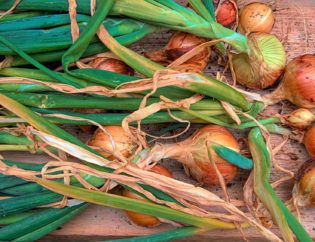Spider mites can attack just about any plant but love certain plants like squash, melons, beans, almond trees, and so many more.
How to Identify
Spider mites are very sneaky and can go unnoticed until the infestation is severe. Initial infestation is indicated by stippled leaf color. Severe infestation will show pale leaves and fine webbing all over the leaf and stems. Some species of spider mites are big enough to see with the naked eye, but most are not. Of course, if you aren’t sure, you can always bring a fresh plant sample into The Greenery and one of our talented staff can diagnose it for you!
How to Prevent
Preventing spider mites is not always possible. The best way is to spray the plants down (this is when overhead watering is a GOOD thing!) with water once every week or two. However, since we are in a drought, we recommend only doing this when you have to. Watering properly to prevent stressed plants will decrease the chances of them getting spider mites since anytime a plant is stressed, it can succumb to an insect infestation. Also, feeding your plants with organic fertilizers make healthier, stronger plants that are better able to ward off insects.
Last but not least, the most important way to prevent any insects is to monitor them. Walk your yard and garden as often as you can (daily if possible), turn leaves over, and look to see what’s going on with your plants. You will be surprised at the problems you can catch just by monitoring! You may also find some wonderful surprises too! This is a great way to get kids involved in the yard and garden.
Control
Treating spider mites is relatively simple but, in some cases, can be a lost cause. Tender annual plants like squash, beans and melons are almost impossible to save when severely infested. However, they can be controlled if caught early enough or found on perennial or woody shrubs and trees.
We recommend Monterey Take Down, which is a pyrethrin and canola oil blend. It kills the adults and all life stages of the insects which speeds up the time it takes to control them. Spray once per week for 2 to 3 weeks or until there is no live insects or new damage. You can also spray the plants down with water 3-4 days after/before spraying.
For controlling large plants or trees, you can use some of the systemic products on the market. Monterey Once a Year can be used for year-long control on ornamental plants. Monterey Fruit Tree and Vegetable systemic can be used on edibles (obviously not an organic solution) for about 3 months of control. The Fruit Tree & Vegetable systemic can only be applied at certain times of the year, so be sure to read the label thoroughly!
If you would like to read further about Spider Mites, see UCIPM’s page here.

